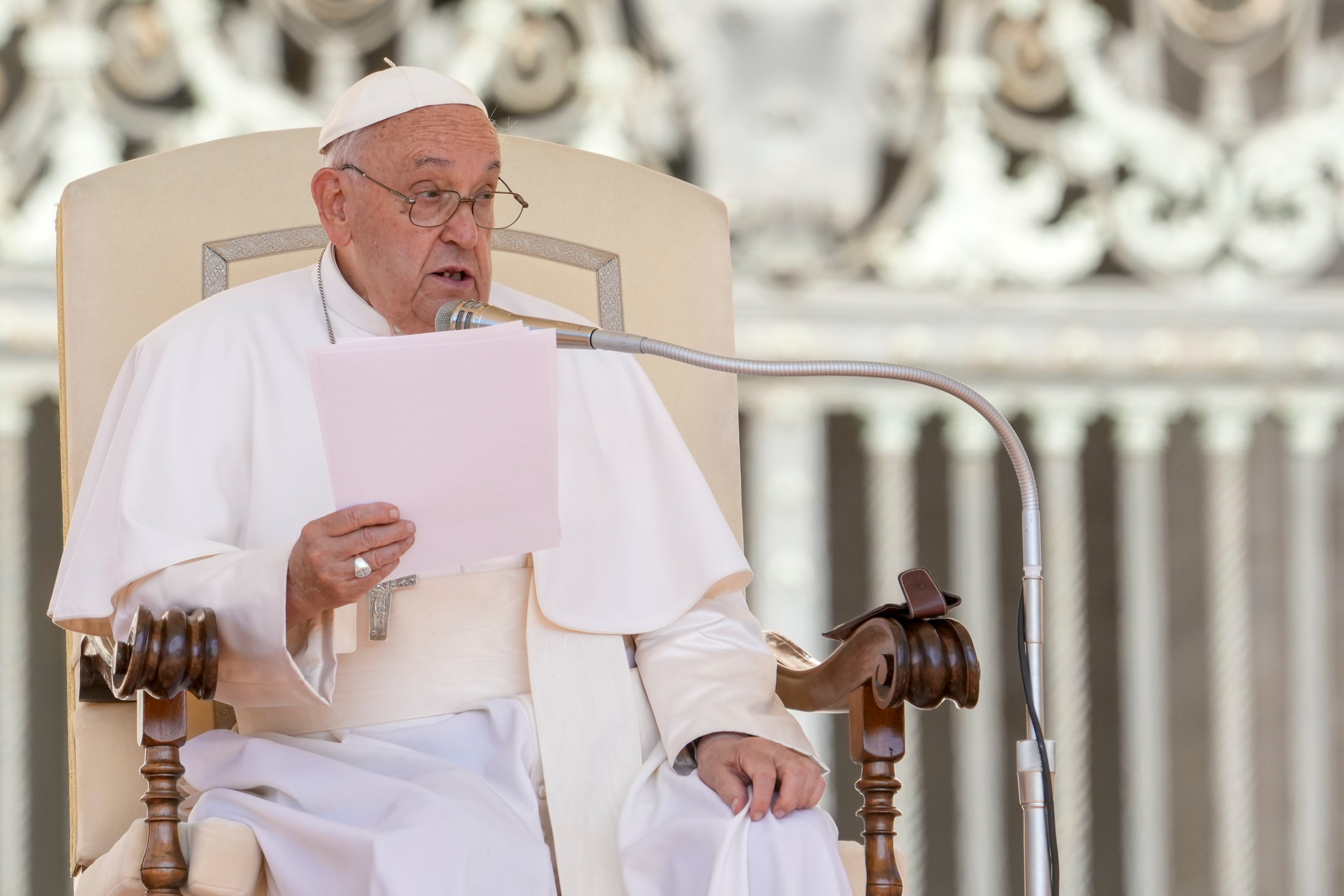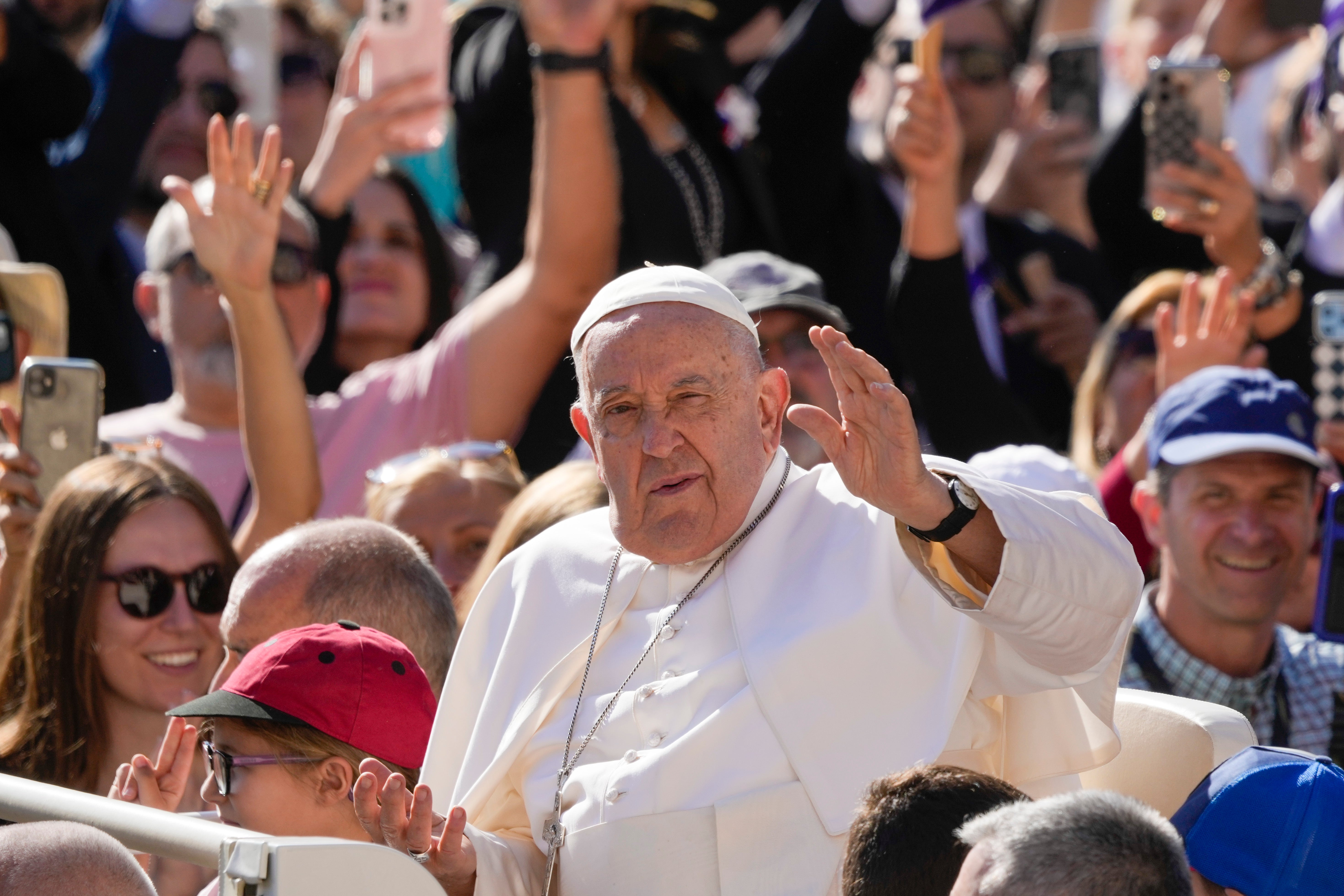
Pope Francis has spoken out against the legalisation of drugs and denounced traffickers as "assassins".
Speaking during his weekly audience in St Peter's Square, he devoted his entire catechism lesson to a reflection on drug abuse calling for help and support for addicts.
He deviated from his regular reflection on a Biblical theme to single out the countries that are successful in warning young people about the dangers of drug use and the "scandal" of trafficking.
The 26 June has been designated World Drug Day by the United Nations, a programme which aims to “strengthen action and cooperation in achieving a world free of drug abuse”.
"A reduction in drug addiction is not achieved by liberalising drug use - this is an illusion - as has been proposed, or already implemented, in some countries,” the pope said.
“This is a fantasy. You liberalise, they just consume more.
“I am convinced that it is a moral duty to end the production and trafficking of these dangerous substances.
"At the same time, however, let us remember that each addict has a unique personal story and must be listened to, understood, loved, and, insofar as possible, healed and purified."

He called for increased prevention efforts and care for addicts, saying they deserve to have their human dignity respected.
Francis, 87, drew no distinction between so-called soft drugs such as marijuana – which has been legalised for recreational use in several countries – and "hard" ones such as heroin and cocaine.
He denounced traffickers as murderers and evil "traffickers of death", corrupted by a lust for power and money, and called for them to repent and change their ways.
"We cannot ignore the evil intentions and actions of drug dealers and traffickers. They are assassins," Francis added.

Francis, who is from Argentina, also condemned the "destructive impact" of drug production on the environment, saying it was "increasingly evident, for example, in the Amazon basin" in Latin America.
He spent years ministering to people in the slums of Buenos Aires where "paco", a cheap drug made from cocaine residue, ravaged the community.
The pontiff has long made visiting recovering addicts a priority during his foreign visits.
"We too are called to act, to pause before situations of fragility and pain, to know how to listen to the cry of loneliness and anguish, to stoop to lift up and bring back to life those who fall into the slavery of drugs," he said.







